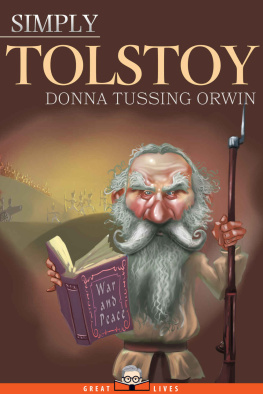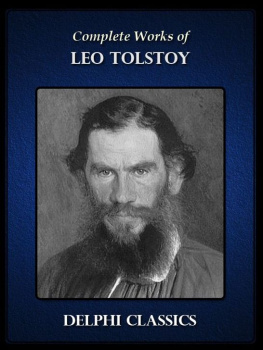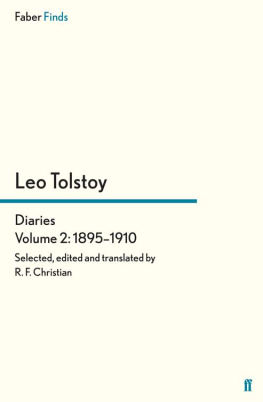TO ARRI SENDZIMIR
ACKNOWLEDGMENTS
All of the stories in this collection with three exceptions were translated by Nathan Haskell Dole. The three Sevastopol stories were translated by Isabel F. Hapgood.
All unascribed footnotes are by the translators.
The editor is indebted to the Library of Congress for courtesies extended to him.
OTHER COOPER SQUARE PRESS TITLES OF INTEREST
MARGARET SANGER
An Autobiography
New introduction by Kathryn Cullen-DuPont
516 pp., 1 b/w photo
0-8154-1015-8
$17.95
THE LANTERN-BEARERS AND OTHER ESSAYS
Robert Louis Stevenson
Edited by Jeremy Treglown
320 pp.
0-8154-1012-3
$16.95
THE SELECTED LETTERS OF MARK TWAIN
Edited by Charles Neider
352 pp., 1 b/w photo
0-8154-1011-5
$16.95
THE WAR OF 1812
Henry Adams
New introduction by Col. John R. Elting
392 pp., 27 maps
0-8154-1013-1
$16.95
Available at bookstores; or call 1-800-462-6420
150 Fifth Avenue
Suite 911
New York, NY 10011
THE INVADERS
A VOLUNTEERS NARRATIVE
1
On the 24th of July, Captain Khlopof, in epaulets and cap,a style of dress in which I had not seen him since my arrival in the Caucasus,entered the low door of my earth hut.
Im just from the colonels, he said in reply to my questioning look; to-morrow our battalion is to move.
Where? I asked.
To N. The troops have been ordered to muster at that place.
And probably some expedition will be made from there?
Of course.
In what direction, think you?
What do I think? I tell you I know. Last night a Tartar from the general came galloping up,brought orders for the battalion to march, taking two days rations. But whither, why, how long, isnt for them to ask. Orders are to gothats enough.
Still, if they are going to take only two days rations, its likely the army will not stay longer.
Thats no argument at all.
And how is that? I asked, with astonishment.
This is the way of it: When they went against Dargi they took a weeks rations, but they spent almost a month.
And may I go with you? I asked, after a short silence.
Yes, you may; but my advice isbetter not go. Why run the risk? ...
No, allow me to disregard your advice. I have been spending a whole month here for this very purpose,of having a chance to see action,and you want me to let it have the go-by!
All right, come with us; only isnt it a fact it would be better for you to stay behind? You might wait for us here; you might go hunting. But as to us,God knows what will become of usl ... And it would be glorious, he said in such a convincing tone that it seemed to me at the first moment that it would actually be glorious. Nevertheless, I said resolutely that I wouldnt stay behind for anything.
And what would you see there? pursued the captain, still trying to dissuade me. If you want to learn how battles are fought, read Mikhailovsky-Danilevskis Description of War, a charming book; there its all admirably described,where every corps stands, and how battles are fought.
On the contrary, that does not interest me, I replied.
Well, now, how is this? It simply means that you want to see how men kill one another, doesnt it? ... Here in 1832 there was a man like yourself, not in the regular service,a Spaniard, I think he was. He went on two expeditions with us,... in a blue mantle or something of the sort, and so the young fellow was killed. Here, batyushka, one is not surprised at anything.
Ashamed as I was that the captain gave such a poor interpretation of my motives, I did not attempt to argue him down.
Well, he was brave, wasnt he? I asked.
God knows as to that. He always used to ride at the front. Wherever there was firing, there he was.
So he must have been brave, then, said I.
No, it doesnt signify bravery,to put ones self where one isnt called.
What do you call bravery, then?
Bravery, bravery? repeated the captain, with the expression of a man to whom such a question presents itself for the first time. A brave man is one who conducts himself as he ought, said he, after a brief consideration.
I remembered that Plato defined bravery as the knowledge of what one ought and what one ought not to fear; and in spite of the triteness and obscurity in the captains definition, I thought the fundamental conception of both was not so unlike as might at first sight appear; and that the captains definition was even more correct than the Greek philosophers, for the reason that, if he could have expressed himself as Plato did, he would in all probability have said that that man is brave who fears only what he ought to fear and not what there is no need of fearing.
I was anxious to explain my thought to the captain.
Yes, I said, it seems to me that in every peril there is an alternative, and the alternative adopted under the influence of, say, the sentiment of duty, is bravery, but the alternative adopted under the influence of a lower sentiment is cowardice; therefore it is impossible to call a man brave who risks his life out of vanity or curiosity or greediness, and, vice versa, the man who under the influence of the virtuous sentiment of family obligation, or simply from conviction, avoids peril, cannot be called a coward.
The captain looked at me with a queer sort of expression while I was talking.
Well, now, I dont know how to reason this out with you, said he, filling his pipe; but we have with us a yunker, and he likes to philosophize. You talk with him. He also writes poetry.
I had only become intimate with the captain in the Caucasus, but I had known him before in Russia. His mother, Marya Ivanova Khlopova, the owner of a small landed estate, lives about two versts1 from my home. Before I went to the Caucasus I visited her. The old lady was greatly delighted that I was going to see her Pashenka (thus she called the old gray-haired captain) and, like a living letter, could tell him about her circumstances and give him a little message. Having made me eat my fill of a glorious pie and roast chicken, Marya Ivanova went to her sleeping-room and came back with a rather large black relic-bag,2 to which was attached a silken ribbon.
Here is this image of our Mother-Intercessor from the September festival, she said, kissing the picture of the divine mother attached to the cross, and putting it into my hand. Please give it to him, batyushka. You see, when he went to the Kapkas, I had a Te Deum sung, and made a vow that if he should be kept alive and safe, I would order this image of the divine mother. And here it is seventeen years that the Virgin and the saints have had him in their keeping; not once has he been wounded, and what battles he has been in, as it seems!... When Mikhalo, who was with him, told me about it, my hair actually stood on end. You see, all that I know about him I have to hear from others; he never writes me anything about his doings, my dove,he is afraid of frightening me.
I had already heard in the Caucasus, but not from the captain himself, that he had been severely wounded four times; and, as was to be expected, he had not written his mother about his wounds any more than about his campaigns.
Now let him wear this holy image, she continued. I bless him with it. The most holy Intercessor protect him! especially in battle let him always take it with him! And so tell him, my dear friend, that his mother gave him this message.
I promised faithfully to fulfil her commission.
I know you will be fond of him, of my Pashenka, the old lady continued,he is such a splendid fellow! Would you believe me, not a year goes by without his sending me money, and he also helps Annushka, my daughter, and all from his wages alone. Truly I shall always thank God, she concluded, with tears in her eyes, that He has given me such a child.
Next page








